Description
Name in North American Boletes: Boletus (now Aureoboletus) auriporus
Genus: Pulveroboletus
- Genus 2: Boletus
Species: atkinsonianus
- Species 2: auriporus
Common Name:
Tells: Red to cinnamon, oft-viscid cap ages darker brown & has a sterile edge. Oft-viscid, oft-ridged stem enlarges going down, bends before snapping (think asparagus), & is cap colored low & lighter high.
Other Information: Pale yellow pores age to olive brown, DNS, & may be depressed by the stem. Cap may crack w/age & may taste sweet. White flesh may have a pale pink tint & sometimes stains blue. Likes oak & hemlock.
Science Notes: Formerly considered a version of Aureoboletus (f/k/a Boletus) auriporus. General distinctions include atkinsonianus growing bigger, getting darker pores w/age, tasting neutral to sweet rather than acidic to neutral, liking both oak and hemlock instead of just oak, and the bend-and-snap stem.
Edibility: Unknown, but probably eaten without note when considered a version of auriporus.
CHEMICAL TESTS:
- NH4OH (Ammonia): No data.
- KOH: No data.
- FeSO4 (Iron Salts): No data.
Links:
 |
0 |  |
0 |  |
0 |  |
289 |

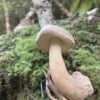
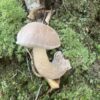
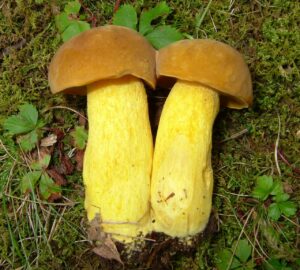
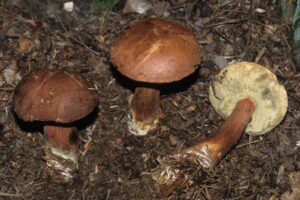

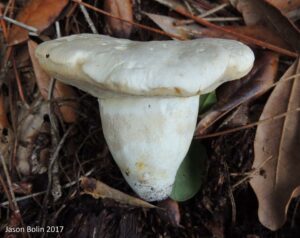
Got something to discuss?